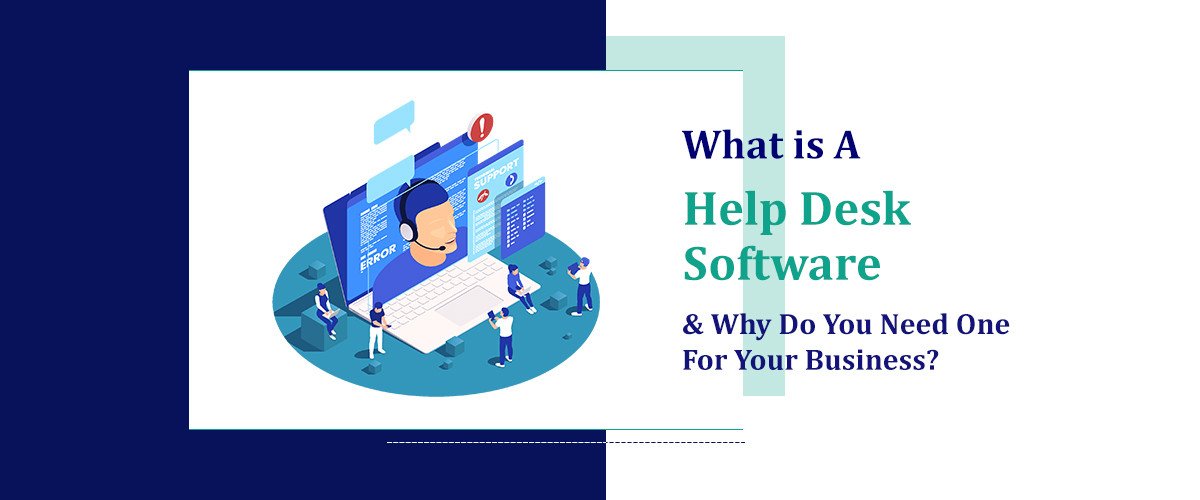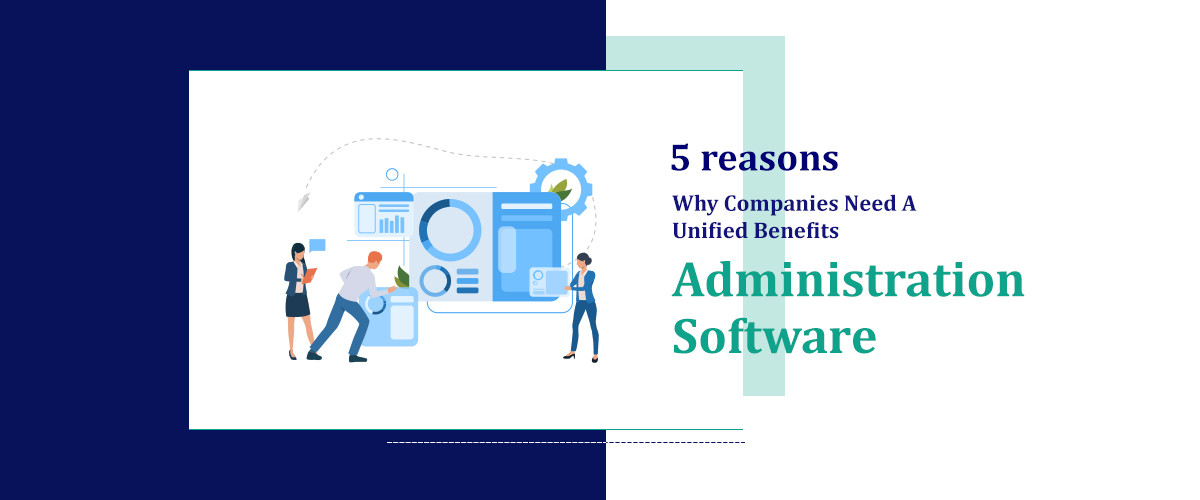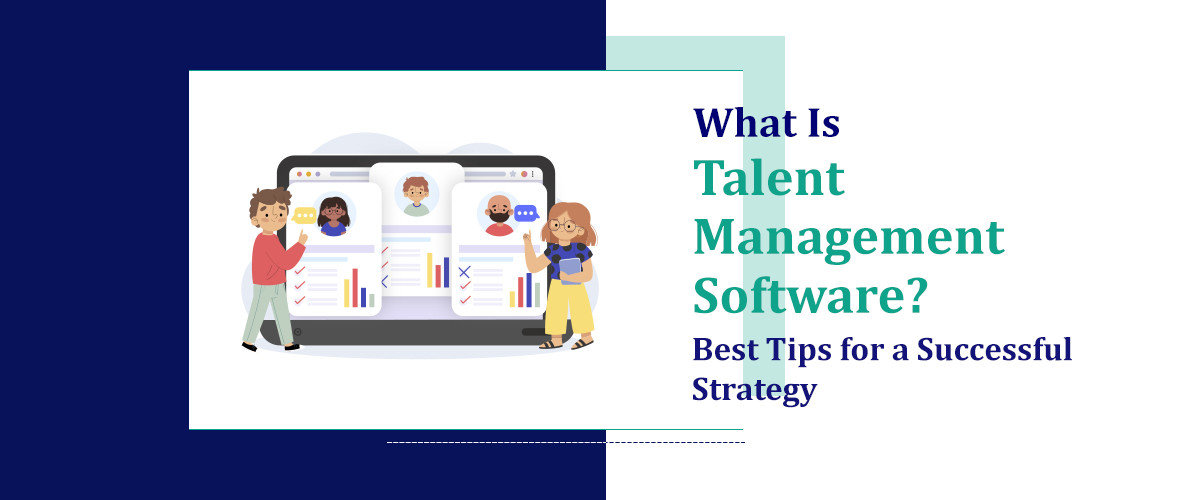What we'll cover
There has never been a more pressing need for quick and effective customer service, and a strong help desk software is the beating core of a well-oiled support operation. A help desk solution is more than just a support tool in the connected business world of today; it's a vital company management platform. This comprehensive guide is your compass to navigating the world of help desk if you're an IT professional, customer support manager, or small company owner trying to enhance your customer support game. You will have a good knowledge of Help desk software USA , its importance to your company, and how to select the best one to improve customer support after reading this in-depth research.
Help desk software is designed to streamline customer service-related communication between a company and its customers. It's more than just capturing customer feedback; it's a system that organises issues, ensures timely responses, and records a history of interactions for reference. It's the operational heart of your support department, as it directly shapes your customer satisfaction levels.
Why is Help Desk Software Important?
Help desk software is essential to the operational effectiveness of American companies as it provides the framework for providing first-rate Customer success software US. It guarantees that client inquiries are not only acknowledged but also promptly and efficiently resolved by optimising communication routes. Customers will be more inclined to trust and rely on you as a result, which is essential for creating lasting bonds in a cutthroat industry. Help software also provides insightful data on consumer behaviour and service performance, which helps companies make wise decisions and enhance their services over time.
Help desk software has become a crucial component of American organisations, and as consumer demands increase, so too will its significance. In today's technologically advanced and fast-paced environment, clients expect flawless support interactions and prompt resolutions from businesses. Help desk software offers a centralised platform for handling client complaints, comments, and queries, which enables businesses to better satisfy these requests.
Types of Help Desk Software
Depending on your demands and the size of your business, there are several kinds of help desk systems available:
-
Software for help desks on the cloud: These online-accessible, as-a-service technologies are perfect for companies who wish to avoid the expense and complexity of implementing an internal IT infrastructure.
-
Software for on-site support desks: These are installed and maintained on the business's own servers and data centres, giving you more privacy and control, but they cost more to set up and maintain.
-
Open-source desk software: It offers source code accessibility, allowing for significant customisation, but managing it efficiently also calls for a greater level of IT expertise.
-
Software for support desks focused on businesses: Designed with bigger businesses in mind, these might be more expensive and have more sophisticated features and operations.
-
Specialised software for the support desk: These platforms, which concentrate on certain sectors or specialised markets, offer customised solutions for distinct client requirements.
Why Do You Need Help Desk Software for Your Business?
An efficient help desk softwareUSA is more than just a support tool; it's a strategic asset that improves team performance, boosts customer happiness, and offers insights that can be put to use in many areas of your organisation.
1. Benefits for Your Customers
- Simplified Interaction
Customers can submit questions using software as a central platform via email, Chatbot software US, or social media. This more efficient method guarantees that client concerns are handled quickly and that nothing falls between the cracks.
- Options for Self-Service
In order to reduce the need for support requests and provide a quicker resolution route, many contemporary help desk systems include knowledge bases and FAQs for users to discover answers to frequently asked problems.
- Availability Round the Clock
Help desks can run 24/7 thanks to automations and AI-driven assistance, which enables companies to serve their international clientele regardless of time zone differences.
2. Benefits for Your Support Team
- Ticket Management That Is Organised
The system logs, classifies, and prioritises each client question so that your support team may concentrate on the most important problems first.
- Cooperation and Information Exchange
Help desk software facilitates the exchange of answers and solutions among support agents, allowing them to collaborate and learn from one another, which increases team productivity and expertise.
- Monitoring Performance
The software frequently comes with reporting capabilities that track customer happiness and support agent performance, assisting management in making data-driven choices to improve service quality.
3. Benefits for Your Business
- Client Perspectives
Help desk software's analytics features let you keep an eye on trends, comprehend client demands, and make deft judgements that will influence your product or service's future.
- Savings on Costs
Help desk may greatly lessen the stress on your support team by automating repetitive operations, allowing them to concentrate on more complicated issues. Examples of these duties include prioritising and classifying tickets and giving standard answers.
- The ability to scale
Whether you run a large firm with a large customer base or are a startup with a small number of clients, a solid help desk system can grow with your company.
How to Implement a Help Desk Software Solution That Works for You
To guarantee a seamless transition and excellent performance, adopting a support desk solution necessitates meticulous preparation. The following is a step-by-step approach to help desk solution implementation for your company:
1. Determine What You Need
Determine the areas of your customer care process that are currently painful. Do you have trouble with unorganised ticketing systems, sluggish response times, or a dearth of avenues for receiving client feedback? Selecting software that successfully handles your difficulties will be made easier if you are aware of them. Consider implementing customer support platforms like Zendesk which are designed to streamline ticketing processes, improve response times, and expand feedback channels, thereby enhancing your overall customer service experience
2. Establish Your Goals
With help desk software USA, what are your goals? Is it better customer happiness, quicker response times, or in-depth knowledge of support operations? Your decision and your strategy of execution will be guided by specific goals.
3. Examine Your Options
There isn't a solution that works for everyone. Look at several help desk systems to determine which one best suits your needs in terms of features, cost, and ease of connection with your existing software stack.
4. Formulate an Execution Strategy
Create a schedule for transferring to the new system that includes precise checkpoints. Think about your support staff's training requirements and, if you're switching from an existing platform, your data migration plans.
5. Implement the System
To test the system with a limited user base, begin with a soft launch or pilot project. Obtain input and make any required modifications prior to a complete rollout.
6. Educate Your Group
The system is only as crucial as a well-trained support staff. Make sure everyone on your staff has received thorough training so they can operate the new software US with ease.
7. Keep an eye on and make Adjustments
Monitor customer feedback, staff utilisation, and system performance. To get the best outcomes, adjust the system and your support procedures using this information.
Finding the Best Help Desk Software for Your Business
There are many different help desk software options available on the market, each with unique features and benefits. Take into account the following elements to determine the greatest match for your company:
-
Crucial Elements
Features like ticket management, knowledge bases, automation, multi-channel assistance, reporting, and analytics tools are essential Compensation management software. Make sure these essential qualities suit the demands of your company.
-
The ability to scale
Make sure the system can expand along with your company. Future demands should be able to access more features without needing a total system redesign.
-
Integration Skills
The project management tools, email, and CRM that you now use should all work in unison with your help desk software. Data exchange and seamless functioning depend on this connection.
-
Personalisation Choices
Seek for a support desk solution that lets you customise the setup to meet your company's needs. It should be easy to customise, even for non-technical people.
-
Interface That's Easy to Use
The programme needs to have easy-to-use navigation and be intuitive. An intricate UI might result in inefficiencies and a challenging learning curve for novice users.
-
AI and automation
Automation and artificial intelligence have the potential to greatly improve your support operations. Aim for features such as sophisticated routing capabilities and chatbots.
-
Safety and Adherence
If you handle sensitive consumer data, be sure the software complies with industry standards for data protection and compliance.
-
Price
Even while it plays a big role, price shouldn't be the only consideration. Along with the cost, take into account the value provided in terms of features, support, and scalability.
Best Practices for Using Help Desk Software
The true value of help desk software is in how you utilise it; merely buying and installing it is insufficient. Take into account the following recommended practices to make sure your new system is working to its fullest capacity:
-
Give Multichannel Assistance
Clients anticipate contacting you by the method of choice for correspondence, be it social media, phone, email, or chat. All of these channels should be combined into a single, unified assistance system by your help desk software.
-
Update Your Knowledge Base Frequently
A well-kept knowledge base may be a very useful tool for both support staff and clients. Ensure that your team is consistently adding new features and procedures, as well as fixes for frequent issues.
-
Make Use of Reporting Tools
Review the metrics and data that your support desk software provides on a regular basis. Analyse the data to spot patterns, deal with persistent problems, and pinpoint areas that need improvement.
-
Promote User Feedback
Your product needs to offer a way for users to contribute feedback or score their assistance encounters. Make the required changes based on this information to improve the calibre of your services.
-
Use Automation Savvily
Automation can save time, but don't use it excessively. Automation should be used to supplement rather than to replace your support staff because human connection is still essential in the field.
-
Maintain a Novel User Interface
Your help desk software's user interface should adapt to the demands and preferences of its users. Make sure the interface is updated and reviewed often to maintain its intuitiveness.
Case Studies of Successful Help Desk Implementation
Insightful examples of how help desk software has changed companies in the real world are available. In order to demonstrate the effectiveness of the appropriate help desk solution, we'll examine a few examples.
- Case Study A: Acceleration of Startup
An expanding startup discovered that their potential expansion was being impeded by manual support methods. They improved their response times, simplified support operations, and provided their client base with capabilities like predictive assistance by putting in place a cloud-based help desk system.
- Case Study B: Business Restructuring
An established business aimed to modernise and centralise its support operations. Following a thorough teaching techniques, they deployed an AI-powered help desk system that enhanced their responsiveness and furnished them with comprehensive consumer insights, which they used to refine their product development tactics.
- Case Study C: Domination in Niche Markets
One business in a specialised field found that its particular customers' demands were not met by general help desk software. They made the transition to a feature-rich, industry-specific help desk platform, which improved customer satisfaction and slashed the time it took to handle technical difficulties.
Conclusion
Help Desk Software is a vital tool for any business aiming to provide exceptional customer service. It streamlines and automates the process of addressing customer queries, ensuring no request goes unnoticed. For businesses, especially those operating within the competitive SaaS space in the USA, incorporating a robust Help Desk Software can significantly elevate customer satisfaction, foster loyalty, and drive growth.
It not only aids in efficiently managing customer interactions but also in gathering insights to improve services and products. Thus, investing in a Help Desk Software is not an expense but a strategic move towards building a reputable and customer-centric business in today’s digital age.
Help Desk Software is a digital platform that manages customer inquiries and issues, facilitating efficient resolution through ticketing systems, customer support automation, and reporting tools.
It can significantly improve customer satisfaction through timely responses, organize support requests to prevent oversight, and enhance team productivity by automating repetitive tasks.
Yes, most help desk solutions offer integrations with a wide range of business tools, including email, CRM systems, and social media platforms, for a seamless support workflow.
Implementation complexity varies, but many providers offer user-friendly setups with guides, customer support, and sometimes personalized training to ensure a smooth transition.
Absolutely. By providing timely and effective support, businesses can significantly improve customer satisfaction and loyalty, directly impacting retention rates positively.




